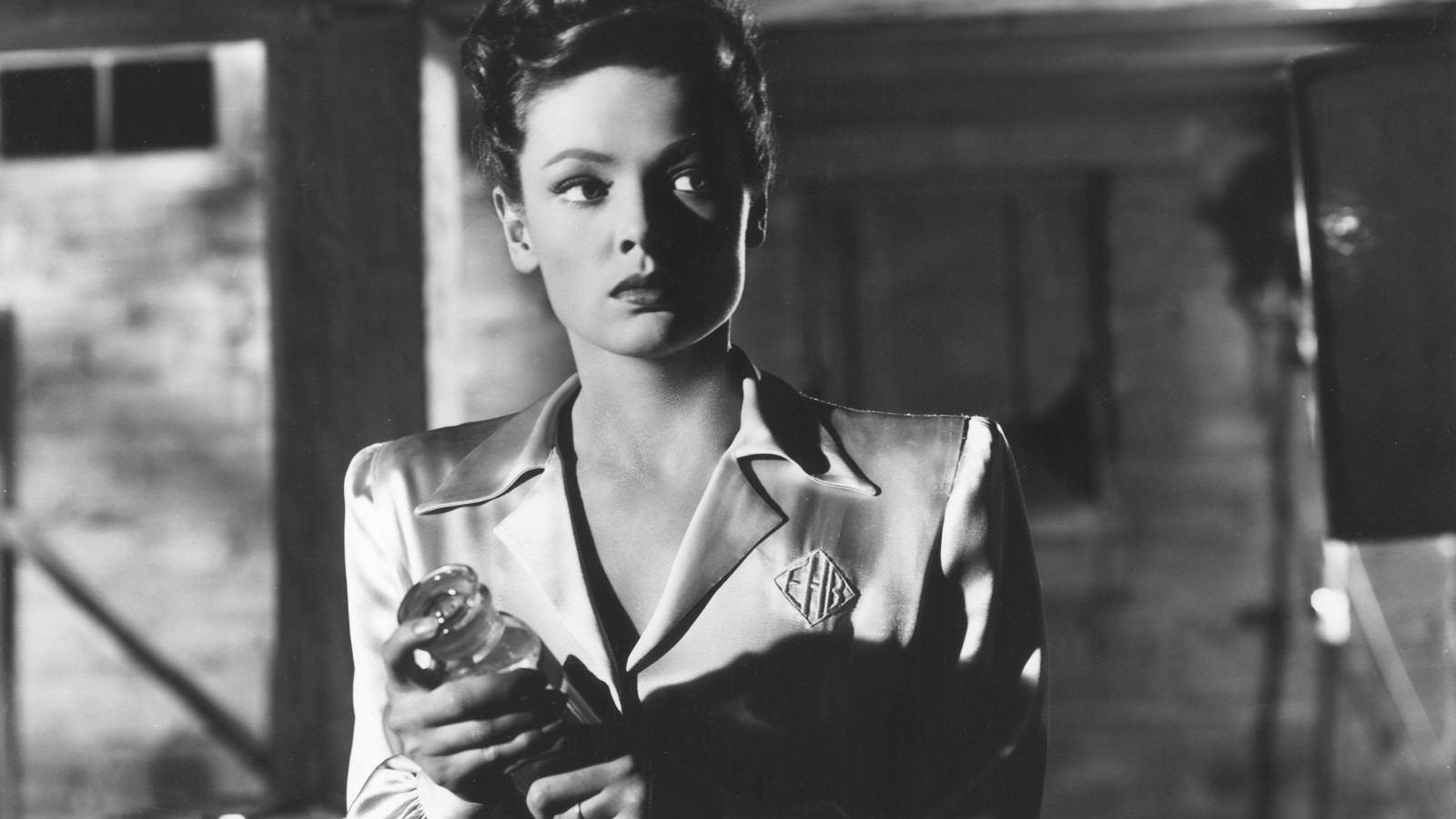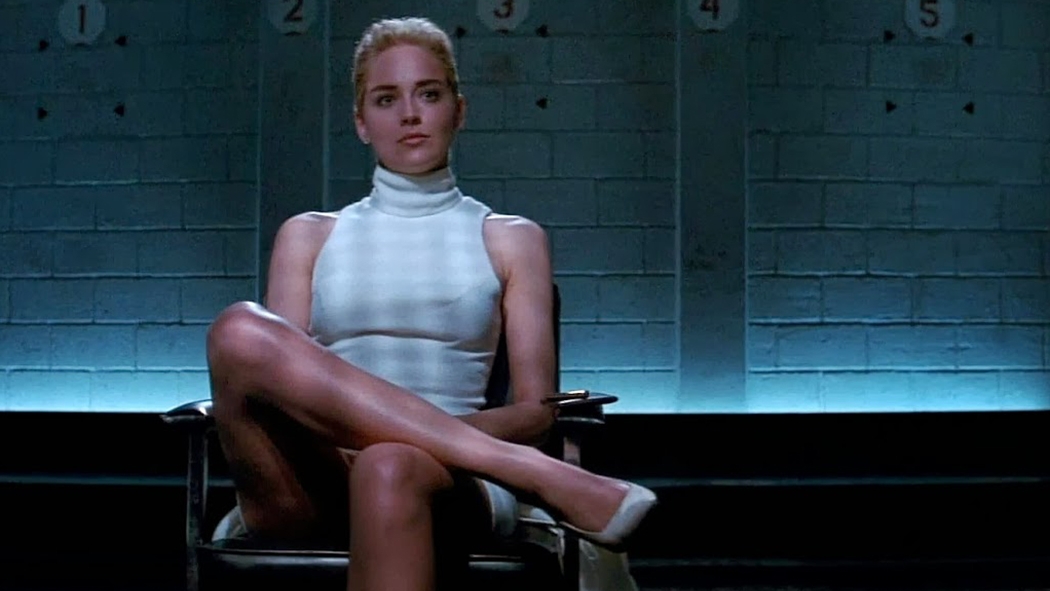I’m So Much Happier Now That I’m Dead: 9 Classics of Femme Noir
Film noir is usually regarded as a masculine genre. You’ve got Bogart, Edward G. Robinson, Fred MacMurray, and other famous men in the genre. While a femme fatale is a defining aspect of film noir, most times these women don’t drive the story themselves. There’s a special kind of film noir - femme noir - where women are at the forefront. They might be investigating the central mystery, or perhaps they are norm-defying villains out to cause chaos. With A Simple Favor in theaters now, here are some excellent femme noir films.
Gone Girl (2014)
Amy Dunne (played with chilling perfection by Oscar nominee Rosamund Pike) is the queen of femme noir. Amy plays the role of the perfect white female victim, the innocent in a gothic romantic horror story, the cool girl turned MRA nightmare shrew—and defies the patriarchal order perpetrated by her aloof husband Nick (Ben Affleck) and the society that wants to box her in. Amy is a delectably nasty and relentless villain, always calculating to come out on top.
Leave Her to Heaven (1946)
Unlike most film noir, Leave Her to Heaven is a lush, colorful, and fashionable noir, and one that is feminine to the point of parody. The film stars Gene Tierney as Ellen, a socialite whose possessiveness over her husband takes some dark and twisted turns. Ellen both longs for and rejects the standards of conventional womanhood, a key component of femme noir. This film is full of dread and offers a very glamorous and satisfying femme fatale.
Kahaani, The Story (2012)
This mystery story follows Vidya (Vidya Balan), a pregnant engineer who travels to Kolkata, India, to investigate the disappearance of her husband Arnab. Though traces of her husband have gone missing, police officer Rana Sinha (Parambhatra Chatterjee) helps her case. Taking place during a festival for Durga, a powerful goddess in Hindu mythology, the film explores themes of feminism in a male dominated society. The religious imagery, sharp editing, and twisty plot make for a thrilling detective story.
Tacones lejanos, High Heels (1991)
Pedro Almodovar’s career is full of women behaving badly, though almost always justified by bad men. The film stars Marisa Paredes and Victoria Abril as a mother and daughter who get mixed up in a murder investigation of a man they both were involved with. The film highlights themes of performance and deception, and long held resentments coming up to the surface. The vivid imagery and murder mystery reveal a complicated story about motherhood and inadequacy.
The Letter (1940)
Bette Davis played many femme fatales in her career, always steering the narrative to center around her scheming, sometimes murderous characters. In The Letter, Davis plays a woman who claims she killed a man in self-defense, then must conceal incriminating evidence. The shadowy and dark cinematography matches Davis’ chilling performance, as she nimbly manipulates the men around her. As she figures out her next move, the audience wants to see her get away with it.
Ek Hasina Thi, There Was A Beautiful Girl (2004)
Indian actress Urmila Matondkar made a name for herself playing offbeat, unconventional roles. In this neo-noir, she plays Sarika, a woman betrayed by the man she loves Karan (Saif Ali Khan) and unfairly convicted to a prison sentence. Upon release, she sets out to get revenge. The film depicts an innocent woman’s descent into chaos and the lengths she will go for vengeance. The film is brutal and mean, and the direction is creepy and inventive.
Basic Instinct (1992)
While Michael Douglas is the nominal hero in this erotic thriller, the film’s lead women are the most memorable parts. Sharon Stone rocked the nation as the could-be-dangerous, could-be-loving Catherine. Jeanne Trippelhorn’s mousy but angry performance is delicious and weird. These two women play mirrors of each other, but the film isn’t a simple Madonna/Whore narrative. Rather, the film satirizes that patriarchal concept through its glib, over the top execution.
The Bad Seed (1956)
The balancing act between noir and melodrama gets a full workout in this shocking creepy child thriller. The dichotomy between cold-blooded murder and performance of harmless femininity is exploited as a woman named Christine (Nancy Kelly) begins to suspect her angelic daughter Rhoda (Patty McCormack) is a psychopath. The film is gripping in its intensity and the histrionic performances elevate the film to beautiful heights. The movie is truly hard to watch at times, and yet you cannot look away.
Mildred Pierce (1945)
Speaking of bad daughters, this noir melodrama has one of the nastiest, cruelest daughters in movie history. Veda Pierce (Ann Blyth) exists to torment and humiliate her hard working mother Mildred (Oscar winner Joan Crawford). The sleek black-and-white look gives the film a sharp, unflinching feel. Mildred’s unconditional love for Veda is difficult to behold but understandable. Veda herself is blinded by ambition and embarrassment of her past. She commits the unforgivable crime of femme noir: wanting more.






















